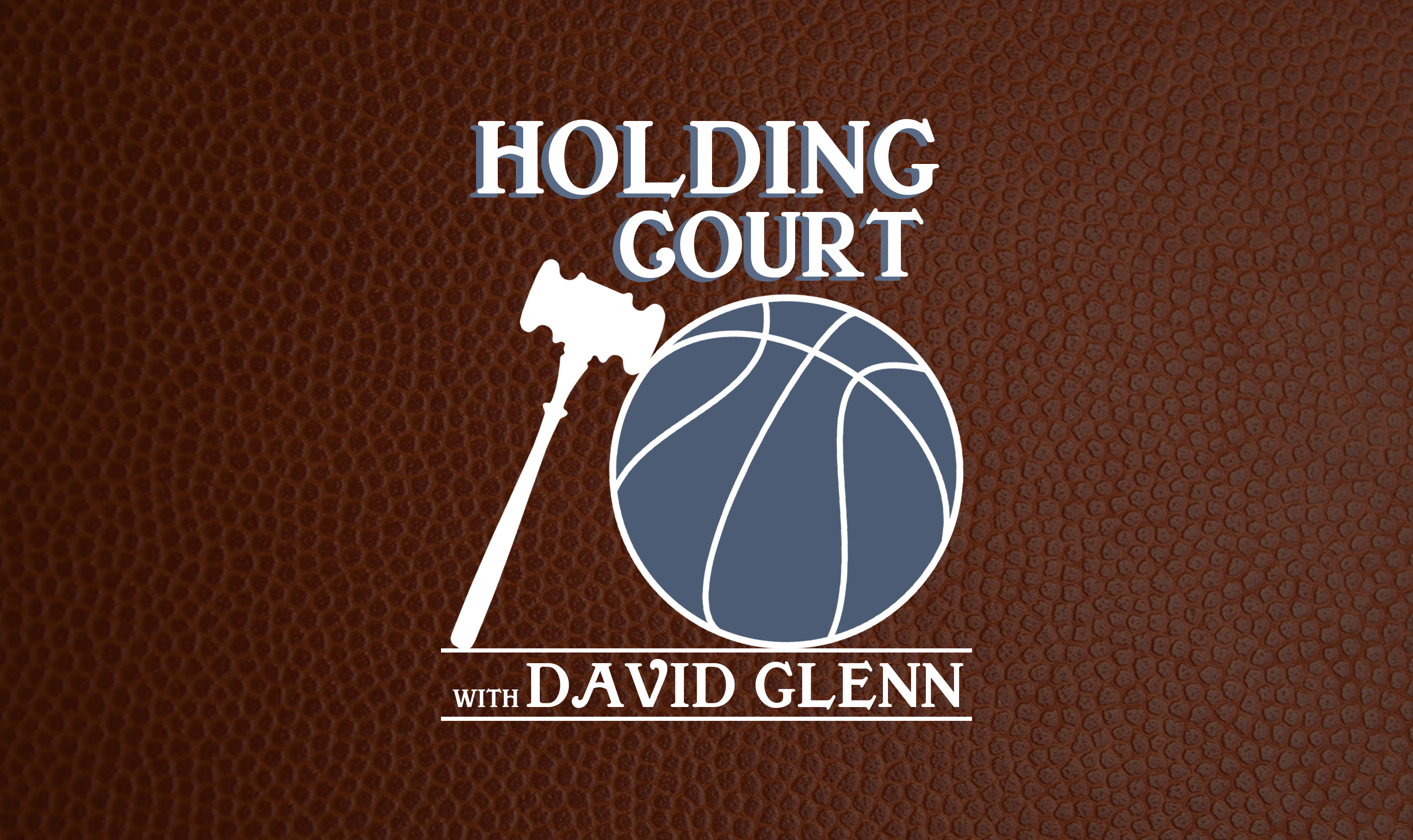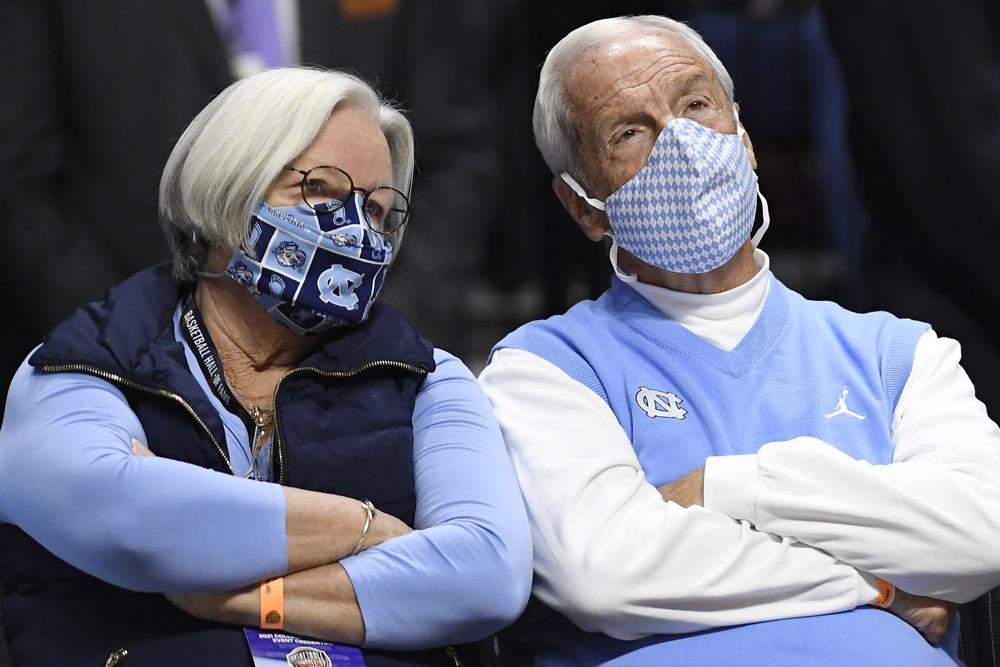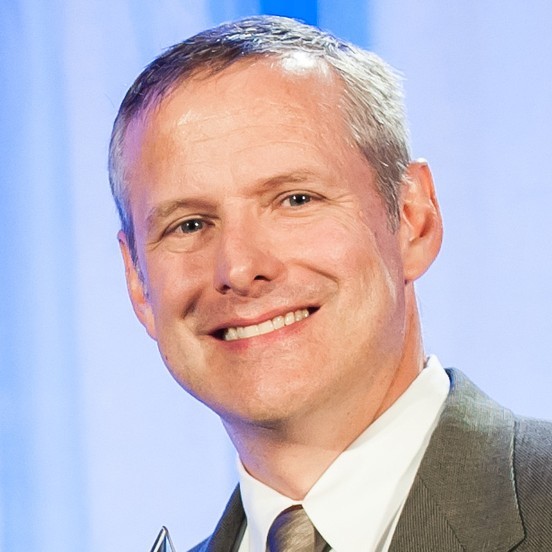
Hall of Famer On His 2-19 Season, NC State, Dean Smith, Hubert Davis, His Wife Wanda, What He Misses About Coaching and More
By David Glenn
(Note: This is the second part of David Glenn’s “Roy Williams Goes to College” series — you can find the first installment here)
Roy Williams recently served as a guest speaker for the sports media class I teach at UNC Wilmington. He seemed relaxed and happy, and he laughed and smiled (he joined via Zoom) a lot. He was serious at times, including when discussing his recent retirement, but mostly playful. He became emotional while talking about his mother and childhood.
As usual, he gave great answers to thoughtful questions, and he somehow turned lesser questions into valuable opportunities for teaching/learning, too. He patiently revisited many old stories, while adding a few unexpected twists, and he told some new stories, too. All the while, he responded to each student by name, often answering as if his or her question (many of which he had answered many times) was his only concern in the world at the time.
This is Part Two of a multi-part summary of Williams’ visit to UNCW’s COM 495 class. Part One (found here) included an extended introduction in which the coach offered some opening comments, before turning the class over to an hour-long Q&A led by the students.
UNCW Student Question: How has the game of basketball changed since your days with coach Dean Smith running the famous Carolina secondary break?
Williams: Wow. (Laughs.) It’s changed so much. It’s not even the same sport in a lot of ways. The two biggest changes, no question, were the shot clock and the 3-point line. That changed basketball completely.
You can go back, it’s funny, in the early days of the NBA 3-point line, they would shoot five or six (3-pointers) a game. Now every player shoots five or six in the first half. So the 3-point line and the shot clock changed it dramatically.
While saying that, the college game is something that also has changed, but it’s still a simple game. I really believe it’s the simplest game there is. You get the ball, then I get the ball. You get the ball, then I get the ball. And one of the only ways to break that exchange of possessions is for me to rebound it more. If I rebound it a little bit more, maybe get an offensive rebound, that gives me a second straight possession. If I don’t let you rebound it, that takes away a possible second straight possession for you. So rebounding is extremely important, and I think even more important nowadays.
The other thing that’s important is the quality of my shots compared to the quality of your shots. If I get better shots, shoot higher-percentage shots, then I’m gonna have a chance to probably beat you. The third thing there, with it’s still a simple game, is you have to get shots, so you can’t turn the basketball over.
So, really, those simple parts of the game have never changed. It’s still (holds up fingers to enumerate) 1-rebound the ball, 2-the quality of shots, and 3-trying to get more shots than you get.
Yet, saying that, geez, teams are shooting so many threes nowadays. The referees, about 30 years ago, decided they were going to quit calling the game the way it was intended. You used to have to dribble with your hand on top of the basketball. Now they can cup it, do all this stuff, so it’s impossible to stay in front of the dribbler. So it’d harder to just guard that one guy, because he has so much liberty with the basketball.
But, still, the bottom line, the fundamentals and the foundation of the game are the same. You have to have the focus now, 365 days a year, at our level. Everybody wants to make that NBA money and have — what do they call them? — “cribs,” and the fleet of cars, and those kinds of things.
UNCW Student Question: How would you summarize what coach Dean Smith taught you, and what you taught Hubert Davis and your other assistant coaches?
Williams: Well, Coach Smith, I was with him (as an assistant) for 10 years. The way I always say it, I felt like every day, he was preparing all of us to be head coaches, but without saying it.
We had so much involvement in all the decisions. He made the decisions; we made suggestions. When you slide over those 18 to 24 inches (moves hands showing shift to head coach’s chair), you go from making suggestions to making decisions, and it’s a huge difference.
But, saying all of that, every part of the game itself … again, I was with him for 10 years, practice every day, planning practice every day, evaluating practices, so the game of basketball I knew a little bit. Recruiting, I had done that, so I knew that a little bit.
The difference is all the things outside the game. That’s what ran Coach Smith out of the game, to be honest with you. I told Hubert, Coach Davis, I said only 25 percent of your day is gonna be coaching your basketball team. The rest of the time is gonna be on that stuff, or David has heard me call it “that junk,” around it.
So what I did with everybody, whether it was Jerod Haase, Jerry Green, Neil Dougherty, Matt Doherty, C.B. McGrath, Ben Miller — I’m trying to think of everybody, all of my assistants who became head coaches — I tried to do the same things to prepare them, let them be involved in every aspect of the game.
My last three or four years, I even asked more questions (of my assistants) on the bench than I ever had previously, just for that reason, to make those guys think a little bit about, “What would YOU do?” So, I’d turn around and say, “Are those the five best defensive players we could have on the court?” I wanted the assistants to talk to each other, and that sort of thing, hopefully, to help prepare them for when they would become head coaches.
Hubert Davis played for Coach Smith, so his fundamental background is the same as mine. He played 12 years in the NBA, so he knows basketball, and he’s been where these guys want to go. Every day, I tried to give him, and everybody else, things that would help them when they became a head coach, too.
UNCW Student Question: Who has been your biggest inspiration and why?
Williams: Well, the biggest inspiration in my life, no question, was my mom, an uneducated but very intelligent lady who was focused on trying to take care of her two children.
She was the core, the strength, of the family. That was something I appreciated at the time, and later on began to appreciate it even more, as I got more mature myself.
Then, my high school coach (Buddy Baldwin), as I said earlier, because he gave a kid some confidence, made him feel good about himself. That made me think that I wasn’t the only guy that he had done that to, so he must be feeling really good, because he’s helped out some other youngsters, and not just me. So that made me make the decision that I wanted to be a coach, too.
Then, Coach Smith, and the way he treated people, his organizational skills, the fact that he had so many things to do every day but he never lost sight of the fact that it was about the players, all of those influences.
Then, after I met Wanda, and we got married, there’s no question. What she was able to do in our home every day, with the youngsters and with me, is still an inspiration to this day.
(The next student apologized to Williams, mentioning that he “had a spotty internet connection at my beach house” during the Zoom class. That meant he couldn’t hear all the other questions/answers, and he didn’t want to repeat a previously asked question.)
Williams: (Laughing.) Eli, let me ask you a question first. How the heck are you a college student and, you said, “at my beach house?” C’mon, man! (Laughs.)
(Eli responds: “Sorry, Coach. Not MY beach house, A beach house.”)
UNCW Student Question: What is the one thing you miss the most about coaching?
Williams: The bigger picture of trying to get people to make sacrifices for a common goal. I loved that.
I’m still the guy, at 71 years old, I arrange the golf trips for eight to 10 couples in the spring and the fall. I’m still the guy that sets all that up. So I’ve been sort of a guy coaching in every aspect of my life.
I could probably count on one hand the number of times in my life I’ve ever been in a bed past 8:30 or 9 o’clock, even when I was a teenager, because I was always calling the guys and telling them what time we were going to play at the park, or then I was calling guys to tell them what our tee times were.
So putting a team together is the thing that I love doing the most, getting guys to make those sacrifices toward a common goal. And, there’s no doubt about it, I enjoyed winning, and being on that side at the end of the game instead of the other side. I miss that part.
I also miss the feelings that my players gave me, and that I hope I gave them. I always say this, if I’m only concerned about how many points or how many rebounds my guys get, then I’m not doing the job that I want to do as a coach. Those relationships. I miss that, too.

Former North Carolina head coach Roy Williams, right, and wife Wanda Williams watch the first half of an NCAA college basketball game between North Carolina and Purdue, Saturday, Nov. 20, 2021, in Uncasville, Conn. (AP Photo/Jessica Hill)
UNCW Student Question: What did you learn from your experience going 2-19 as a high school coach (at Charles D. Owen in Black Mountain, near his hometown of Asheville), and what did you change to become a Hall of Fame coach?
Williams: Well, 2-19, we were lucky to beat those two guys! (Laughs.)
As a matter of fact, if you drive west (toward Asheville) on Interstate 40, you see a sign that says “Drexel,” and it’s an exit up there. Every time I pass that sign, I get a warm, fuzzy feeling, because we beat those guys both times my first year as a high school coach.
The things that I learned that year … regardless of how prepared I was, or unprepared, the biggest thing was trying to get the kids to buy in to what I was trying to get them to do. So, from there on out, it was about them improving as an individual, and how that fit in with our team.
My high school principal, the guy that hired me … they interviewed 10 other people for the job, and they offered it to five. I was the 11th person interviewed. The other five turned it down; it wasn’t a great situation.
I’ll never forget, (the principal) said, “Coach, we’ve gone six straight years winning six games or less.” And I said, “I will change that, I promise you.” So my first year, 2-19, we stretched that sucker to seven years of winning six or fewer games. (Laughs.)
It was just about the fact that I felt like I was completely prepared, I felt like I planned everything, I organized everything. But still, I’ve got to also understand that part of player development and team development. And I felt like I did a nice job of coaching, but it wasn’t successful. So how can you say you did a successful job, or a good job, if you don’t win?
So, for me, at a high school program, having those kids back … we started two seniors my first year, and then we had some younger guys that ended up doing well for us. They got better and better and better. So, it was about getting better as an individual, and then my job was to put those guys together as a team. For me, I think that was the biggest thing I learned.
UNCW Student Question: Coach, I’d like to keep this light, so as an NC State fan I’ll just ask, what was your secret formula to beating us every single year?
Williams: (Laughs.) You know, people don’t believe this, but I felt like when I came back (from Kansas) that Duke was the big name. Some fans would say, “Hey, I don’t care how many games you win, if you can just beat Duke.” And I was afraid my players were gonna have that same attitude.
I go to the airport, and (current Wolfpack coach) Kevin Keatts goes to the airport, and Krzyzewski goes to the airport, and I didn’t want to go over there and see those guys all the time and have one competition with one and none with the other, that kind of thing.
So I made a conscious effort to really try to get our players fired up to play against North Carolina State myself. The fans and the media and everybody else, I thought, would give us an opportunity to be enthused to play against Duke. But I felt like, for us to be successful, we’ve gotta beat both those people. So I probably put more emphasis into the North Carolina State game than any game we played all the time because I didn’t want our guys to not have the focus there that we needed.
It started a little bit when we were at Kansas. We played North Carolina State four times, twice at KU and twice in Raleigh, and we won all four games. So that gave us a good start. But, yeah, we had pretty good (38-5 against the Wolfpack overall) success.
Next Time: Roy Williams Goes To College, Part Three
 David Glenn (DavidGlennShow.com, @DavidGlennShow) is an award-winning author, broadcaster, editor, entrepreneur, publisher, speaker, writer and university lecturer (now at UNC Wilmington) who has covered sports in North Carolina since 1987.
David Glenn (DavidGlennShow.com, @DavidGlennShow) is an award-winning author, broadcaster, editor, entrepreneur, publisher, speaker, writer and university lecturer (now at UNC Wilmington) who has covered sports in North Carolina since 1987.
The founding editor and long-time owner of the ACC Sports Journal and ACCSports.com, he also has contributed to the Durham Herald-Sun, ESPN Radio, the New York Times, the Washington Post, Raycom Sports, SiriusXM and most recently The Athletic. From 1999-2020, he also hosted the David Glenn Show, which became the largest sports radio program in the history of the Carolinas, syndicated in more than 300 North Carolina cities and towns, plus parts of South Carolina and Virginia.

